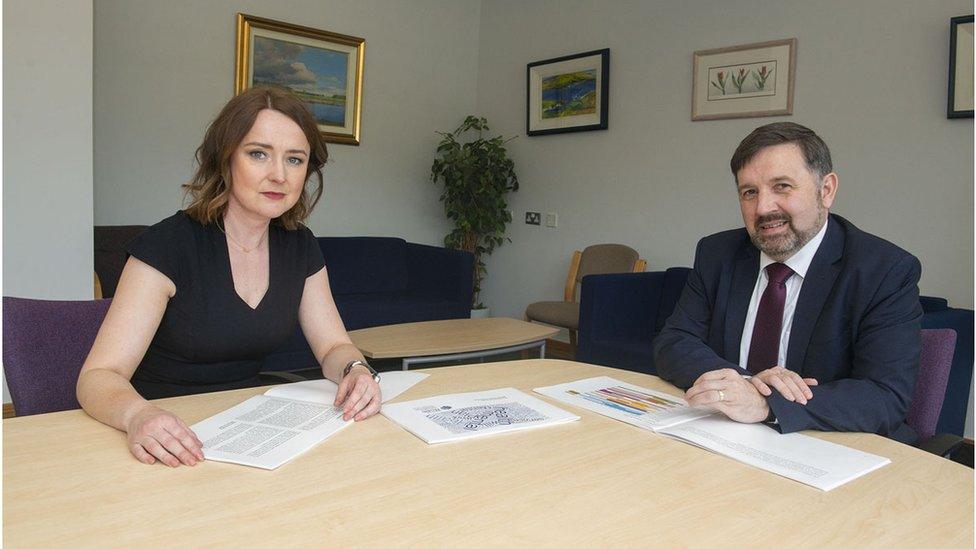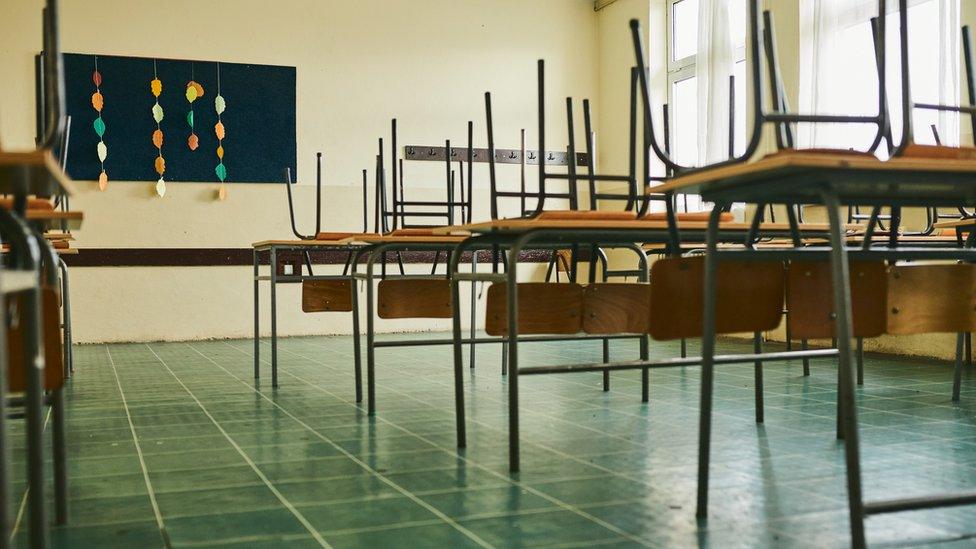Coronavirus: Call for NI children to have mental health checks
- Published
'They were left completely powerless' - Call for NI children to have mental health checks
Things that "made life meaningful" have been taken from children and young people due to lockdowns and the coronavirus pandemic, according NI's mental health champion Professor Siobhan O'Neill.
She said children should be offered mental health assessments this summer.
It would be part of a large-scale wellbeing scheme.
Prof O'Neill said children had been deprived of friend and teacher contact, as well sport and outdoor play.
She told MLAs on Stormont's education committee she was "increasingly concerned about the mental health of our young people and the impact the pandemic has had on them".
"I am concerned that our young people are actually losing hope about their future," she said.
Prof O'Neill also said the re-opening of schools "needs to be a priority" for the executive.
She said teachers should be vaccinated as a priority as one of a number of measures to make schools safer.
The Executive has previously decided that most pupils in Northern Ireland will not return to school until Monday 8 March at the earliest.

Prof O'Neill was appointed to the role in June 2020 by Health Minister Robin Swann
A number of UK-wide studies have suggested that the pandemic is having a "devastating" effect on children.
"Unless we act now and act strategically we will have failed a generation of young people," Prof O'Neill told MLAs.
"Not only did they have to cope with the stress and uncertainty of a global pandemic that we were all dealing with, they also lost contact with their friends and teachers with the closure of schools.
"Many of the elements of their life, the things that made life meaningful for them, were taken from them."
Prof O'Neill said children from low-income households, and with disabilities and special educational needs "were much more likely to have emotional and attentional difficulties".
"And worryingly these rates didn't reduce whenever the schools were opened, whenever the lockdowns eased - they stayed really high and that's really really worrying."
Professor O'Neill also said children were affected from stress felt by their parents.
"Parental depression also increased when the schools were closed," she said.
Summer opportunity
In her written briefing to MLAs she also cited research suggesting that lockdown measures were having a negative effect on the mental health of children and young people.
"There is an increasing body of evidence showing that the emotional and mental health of children and young people has been adversely impacted by the pandemic and the restrictions," she wrote.
"The summer holiday period should be viewed as an opportunity to deliver a free comprehensive programme to all children and young people in NI which focuses on wellbeing."
Prof O'Neill said the programme should be offered in all communities and run jointly between the departments of health, communities and education and would include:
A full medical and dental assessment to identify children requiring treatments and provide referrals (via GPs).
Physical activity and a healthy balanced meal and snack daily.
Training in age-appropriate emotional regulation and problem-solving.
Creative pursuits, including options for music, drama and art/crafts.
Mental health assessment with referrals for brief interventions and treatment as required.
She also said when schools reopen there should initially be a curriculum "designed to address children's worries about the pandemic and the virus".
That would mean "a structured day consisting of creative activities, healthy meals, and opportunities for less structured activities including exercise and play (outdoors where possible)".
"Psychological safety and connection to the wider school community should be promoted before there is any attempt to return to the regular curriculum, because it is only within this context that learning can occur," Prof O'Neill concluded.
- Published30 January 2021
- Published28 January 2021

- Published24 June 2020
